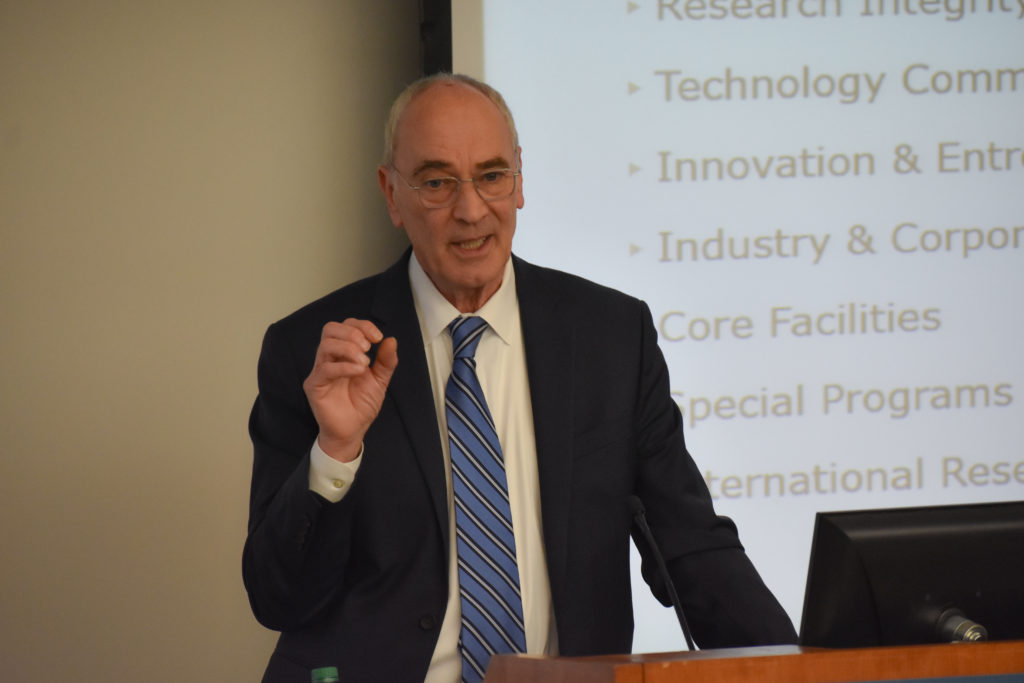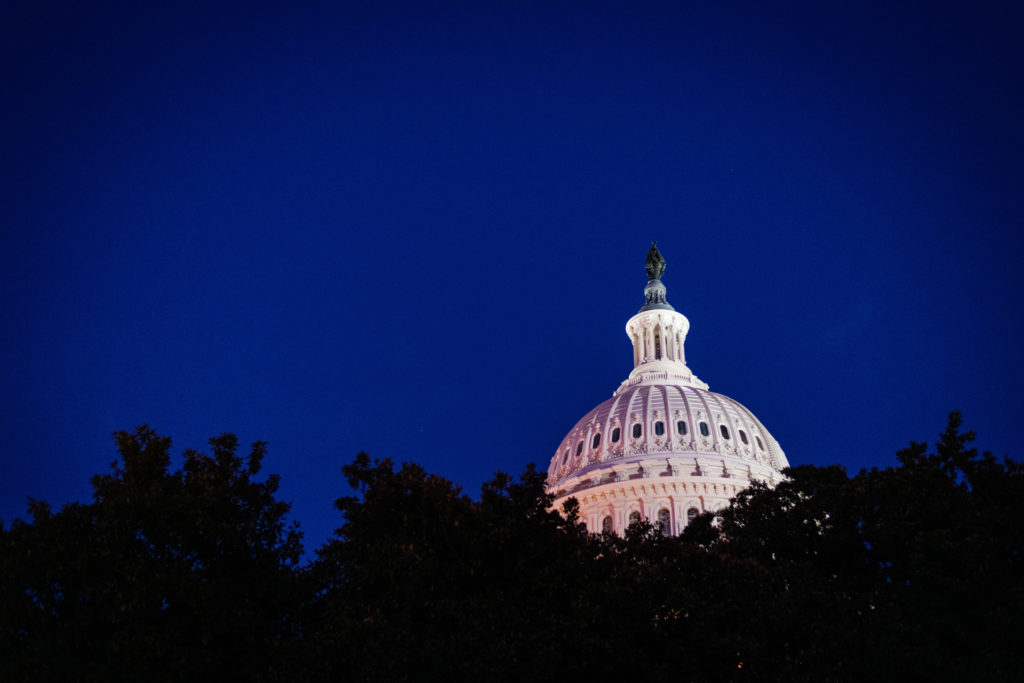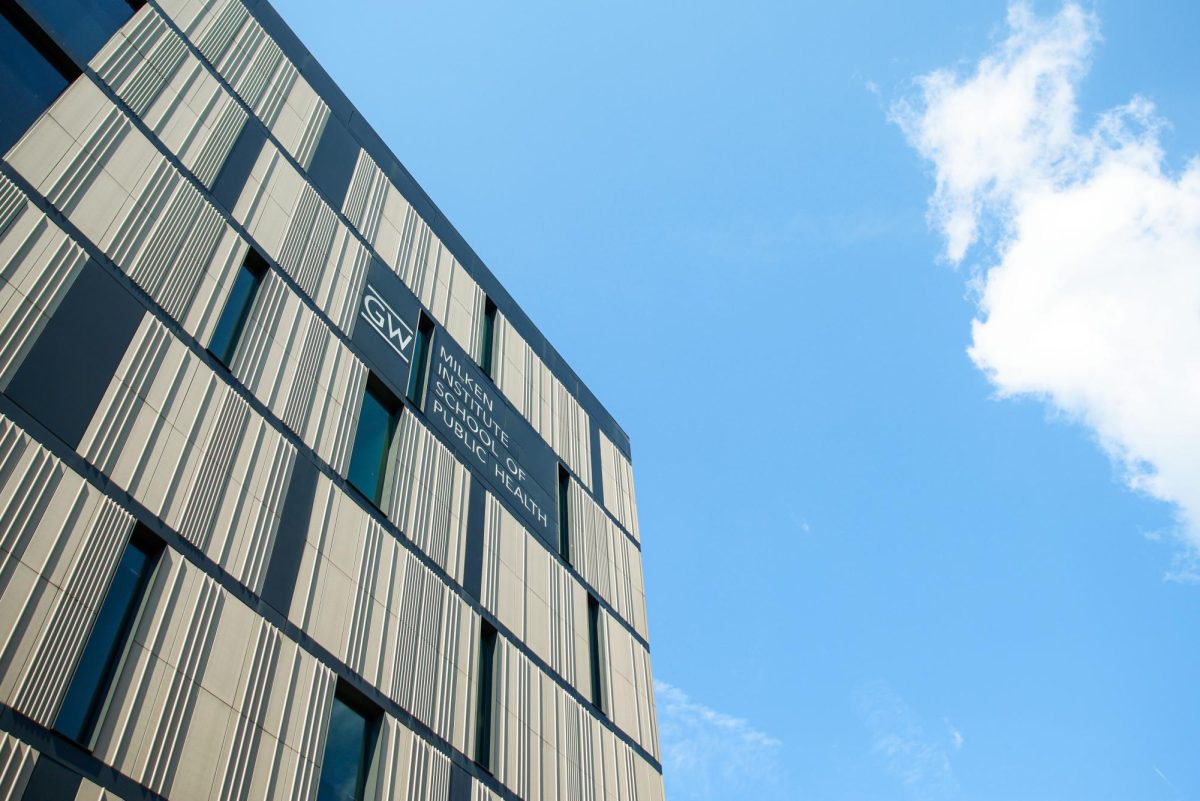The University is debuting a research fund for regular full-time faculty interested in studying how to mitigate the effects of COVID-19.
Staff in the Office of the Vice President for Research developed the fund in collaboration with the Milken Institute School of Public Health and the School of Medicine and Health Sciences to support research projects that seek to understand COVID-19 using GW facilities and resources. Faculty said the fund will provide researchers with the necessary financial resources to gather preliminary data and receive more substantial funding from external organizations.
Vice President for Research Robert Miller said officials launched the fund April 17 with the approval of the provost’s office using previously budgeted funding for intramural programs. The OVPR will not seek additional financial support for the fund, which will disburse grants between $5,000 and $25,000 in value, and researchers are encouraged to apply for external support, he said.
“Their projects have the potential to prevent suffering, inform policy and responses to future outbreaks and strengthen the resiliency of individuals and communities,” Miller said in an email. “Discovering and disseminating new knowledge for the public good is at the heart of the University’s mission.”
Miller said given the limited availability of funds, faculty should only apply for funding if it is “critical to their project” or if they are unable to secure funding from other sources.
He added that the OVPR will share the costs of allocating grants with the public health and medical schools depending on the applicant’s affiliation.
“Even in these difficult times, we felt this was an important investment to make to contribute new scholarship and research to the global pandemic response and to secure the future success of our faculty,” Miller said.
OVPR staff will prioritize funding projects that yield external funding opportunities or bring recognition to the primary investigator and University, according to the research office website. Priority consideration will be given to projects that generate rapid preliminary data, promote the use of existing drugs and therapies, use GW’s “core” services and facilities and address aspects of telehealth.
Full-time professors working at GW next academic year are eligible to apply for a grant through June 1, the website states.
Murray Loew, a professor of biomedical engineering, said the fund will enable academics outside of the medical field, like those in engineering and computer science fields, to receive the funding needed to contribute to research on how to most effectively carry out epidemiological measures, like contact tracing, to mitigate the pandemic.
Loew said he hopes the fund will advance research his department is already conducting on N95 masks and respirators.
He added that the goals officials are prioritizing with respect to research on COVID-19 could raise GW’s research reputation given the pandemic’s high profile.
Researchers in the public health school have explored topics ranging from the effects of COVID-19 on displaced populations to sustaining the health care workforce during the pandemic.
“I hope that whatever research is funded will be useful, No. 1, and recognized beyond the University,” Loew said. “We have a lot of very good people in the University, and we always are interested in making the University more visible to increase its reputation.”
Researchers said dedicating a fund specifically for COVID-19 projects will reduce financial barriers to conducting research and expedite the publication of studies related to the effects of the virus.
Yang Feng, an associate professor of biostatistics at New York University, said the fund will support interdisciplinary research efforts between epidemiologists and specialists in fields like statistics and computer science.
He said these diverse fields play an important role in combating the pandemics – engineering researchers can develop more efficient methods to produce robust protective medical equipment and statisticians can study how officials allocate medical supplies nationwide.
“It’s not just about understanding the disease spread – it’s also a large influence to different areas of our society,” Feng said. “A lot of different research fields can play a role in this epidemic. Pretty much everybody can participate to help us understand it.”
Rebecca Dutch, a professor of molecular and cellular chemistry at the University of Kentucky, said her university has a similar fund that provides “seed funding” – financial support for preliminary research – for COVID-19 projects. She said researchers have to present preliminary data to larger research funding agencies to be competitive for more substantial funding.
She said a university-run fund to support budding projects eliminates barriers to conducting research because faculty immediately have the resources to start working instead of waiting for funding from other organizations.
“It allows them to develop new areas of research that are obviously critically important right now,” Dutch said. “It allows them to use the experiences they’ve had prior to this to help try to solve a global crisis, and it allows them to think of new ways to collaborate and work together.”








